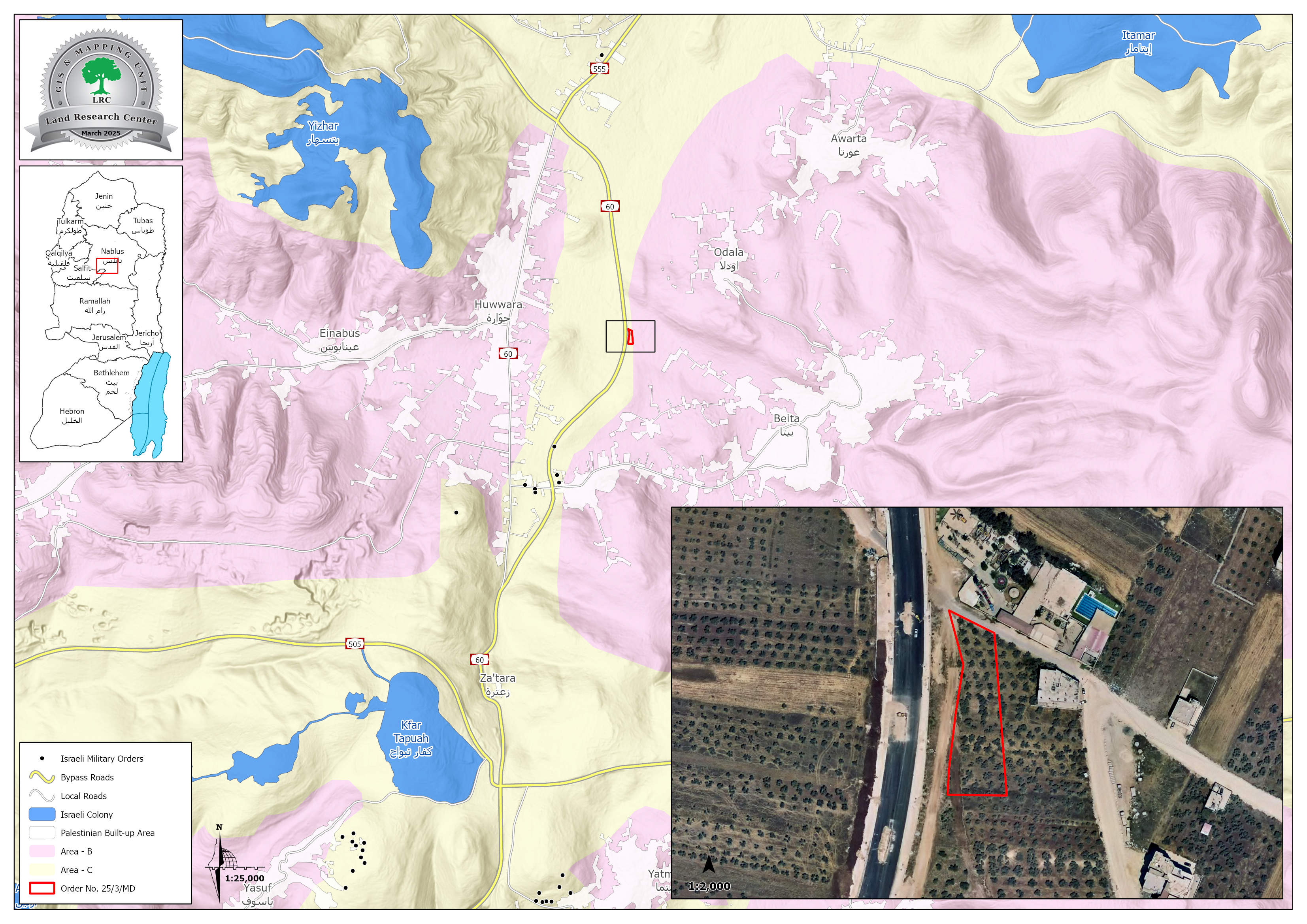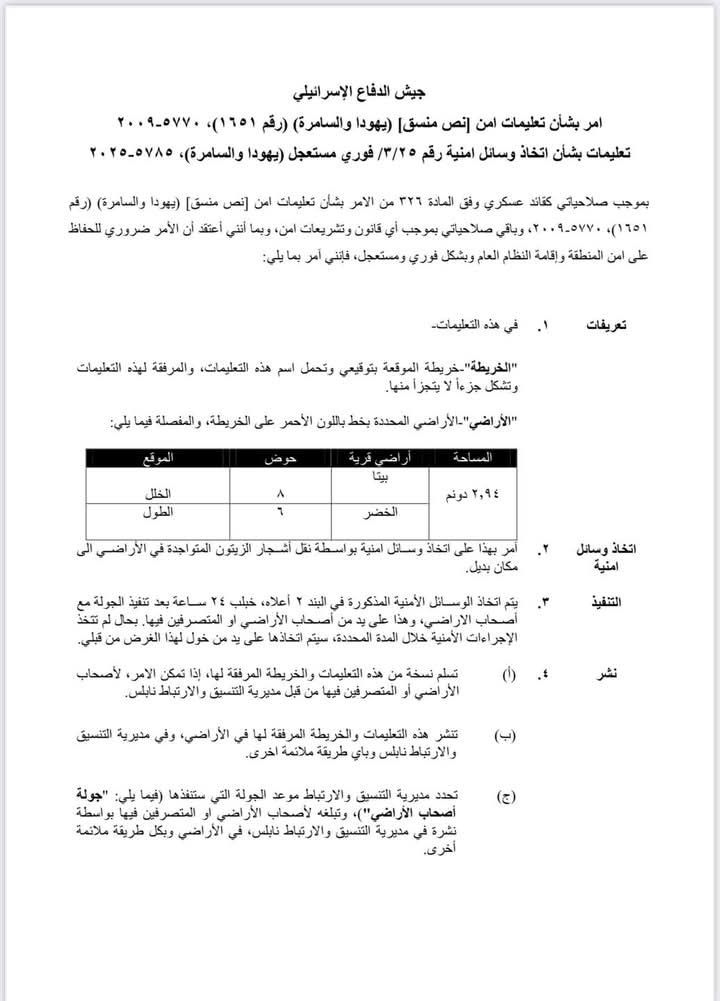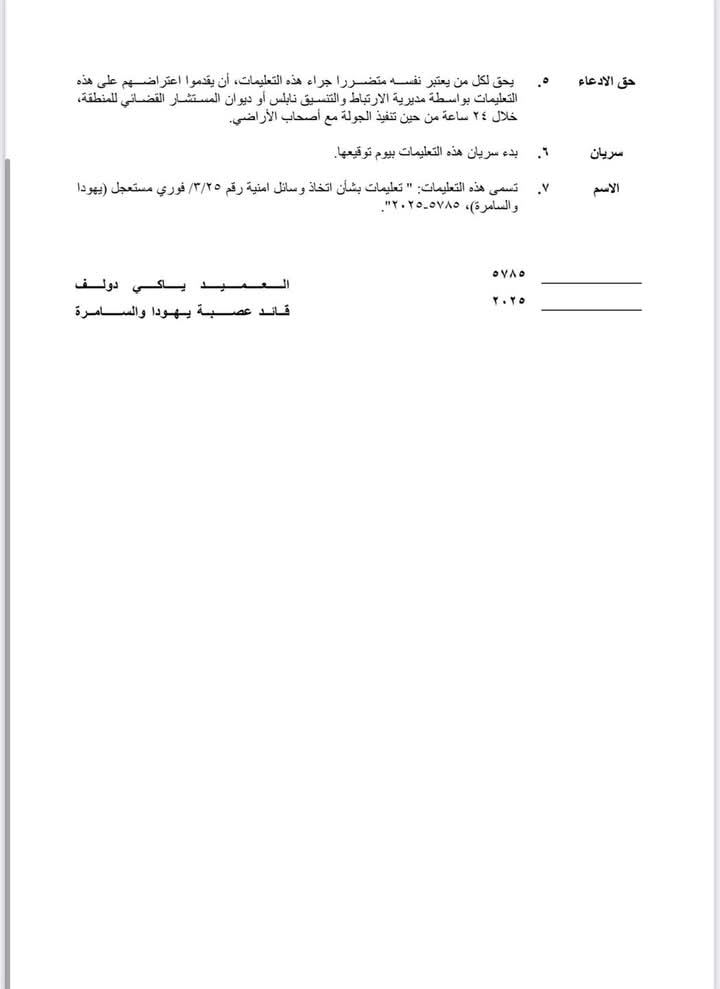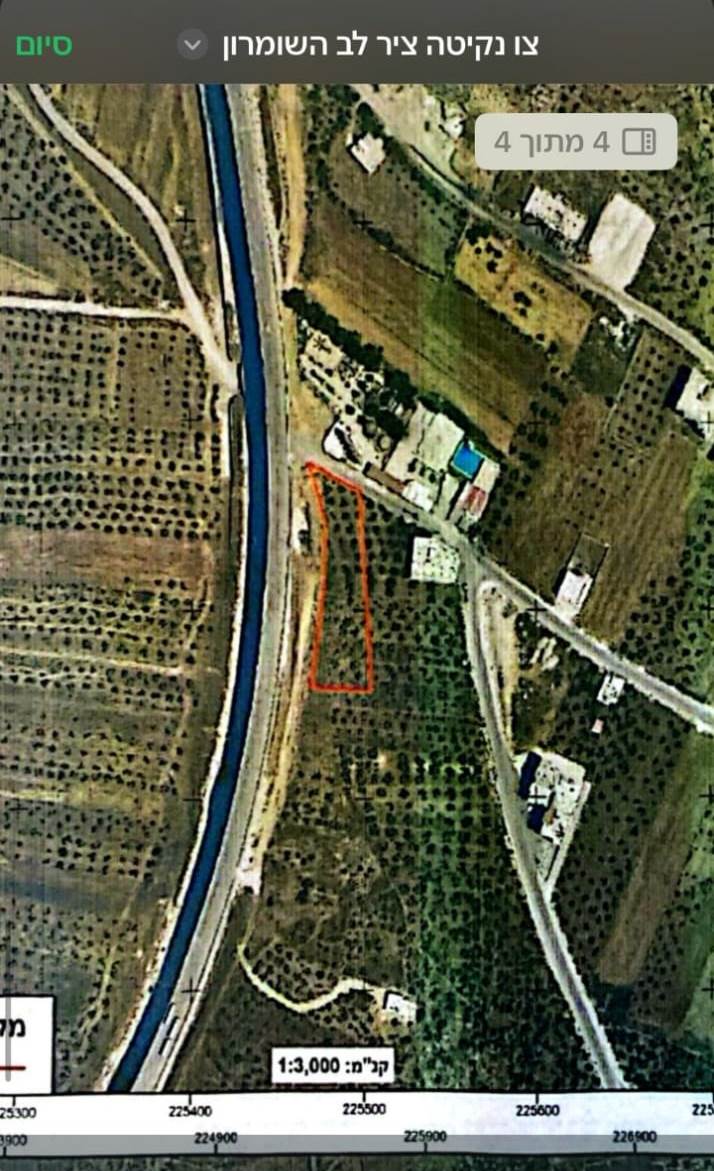Occupation Issues Military Order to Remove Fruit Trees on 3 Dunams of Land in Beita and Huwwara Villages South of Nablus
- Violation: Military order to remove trees.
- Location: Beita and Huwwara villages / South of Nablus.
- Date of Violation: March of the year 2025.
- Offending Party: Israeli Occupation Army.
- Impacted Party: Residents of both villages.
Description:
At the beginning of March, the so-called commander of the Israeli occupation army in the West Bank, "Yaki Dolf," issued a new military order titled "Instructions Regarding the Adoption of Security Measures 25/3 - Immediate and Urgent."
According to the provisions of this military order, the occupation army grants itself the right to seize a piece of land with a total area of 2.9 dunams. This land is located alongside a section of Bypass Road No. 60, which runs through the towns of Beita and Huwwara
The targeted land is planted with productive olive trees, and under the pretext of so-called "security reasons," the Israeli occupation aims to relocate the trees to another location. The justification provided is that the removal of the trees will enhance visibility and surveillance capabilities for the Israeli occupation forces.
The targeted area falls within the following locations:
- Beita town: Plot No. 8, Al-Khalal site.
- Huwwara town: Plot No. 6, Al-Toul site.
From her side, Rana Abu Hani, a member of the Legal Information Office "Milad" in the Huwwara Municipality, stated:
"This decision has serious implications, as the occupation is targeting olive trees located on both sides of Bypass Road No. 60. The occupation specifically aims to uproot and relocate approximately 25 olive trees from this site, which implicitly means full control over the area and reinforcing the occupation’s dominance.
This decision adds to the suffering of farmers and traders in Huwwara, exacerbating the town’s existing crises. I believe that once the trees are removed, the occupation will not allow any Palestinian citizen to reclaim or use the land again, creating yet another problem for us."
It is mentioned that the field researcher has documented several attacks on agricultural lands in the towns of Huwwara and Beita in the past. The most notable of these include the construction of a settler road and the establishment of a new outpost in Huwwara and another in Beita, reflecting the magnitude of the tragedy that farmers in the region as a whole are experiencing.
A Brief Overview of the Town of Huwwara:
Huwwara is located 8 km south of the city of Nablus, along Bypass Road No. 60, which connects the northern and southern parts of the West Bank. This road is commonly referred to as the "Death Road" due to the high number of daily accidents, including vehicle collisions and pedestrian run-overs. The Huwwara municipality has repeatedly attempted to maintain the road and install warning signs, but the Israeli occupation obstructs these efforts and refuses to allow even basic safety signs.
As of 2017, the population of Huwwara stands at 6,659 residents, primarily divided into three main families: 'Awad, Dmeidi, and Khammous. Additionally, about 3% of the town’s population consists of refugees.
The total area of Huwwara spans 8,520 dunams, with 1,116 dunams designated for built-up areas. The Israeli settlement of "Yitzhar" is established on village lands, having seized 331 dunams. Furthermore, Bypass Road No. 60 has expropriated an additional 430 dunams from the town’s land.
Land Confiscation Violates International Laws
The actions of settlers in the occupied Palestinian territories, including the confiscation of Palestinian lands and the establishment or expansion of settlements, constitute a violation of Palestinian rights and international laws. Below are key legal provisions and international treaties that explicitly prohibit Israeli settlement activity in Palestinian territories and safeguard the rights and properties of civilians in occupied lands, along with relevant United Nations resolutions.
The Lahai Convention of 1907
- Article 46: An occupying power is prohibited from confiscating private property.
- Article 55: The occupying state acts as an administrator of the occupied land and must treat its properties as private assets, ensuring their protection.
The Fourth Geneva Convention of 1949
- Article 49: The occupying power is forbidden from transferring its own population into the occupied territories or taking any measures that would alter the region’s demographic composition.
- Article 53: The occupying forces are prohibited from destroying private, collective, state, or any other property belonging to authorities within the occupied country.
- Article 147: The destruction or unlawful seizure of property on a large scale, without military necessity and in an arbitrary manner, constitutes a grave breach of international law.
Top of Form
مشروع: حماية الحقوق البيئية الفلسطينية في مناطق "ج" SPERAC IV - FCDO
Disclaimer: The views and opinions expressed in this report are those of Land Research Center and do not necessarily reflect the views or positions of the project donor; the Norwegian Refugee Council.
إخلاء المسؤولية: الآراء ووجهات النظر الواردة في هذا التقرير هي آراء ووجهات نظر مركز أبحاث الأراضي ولا تعكس بالضرورة وجهات نظر أو مواقف الجهة المانحة للمشروع؛ المجلس النرويجي. للاجئين




